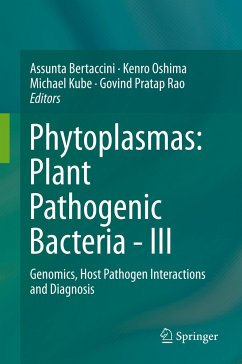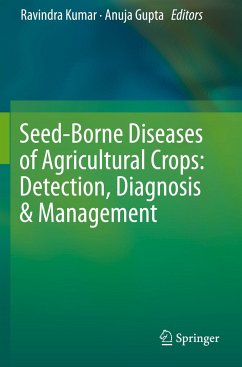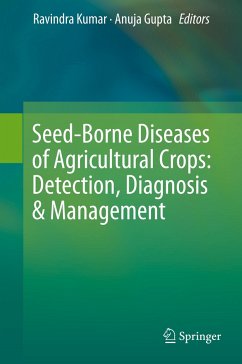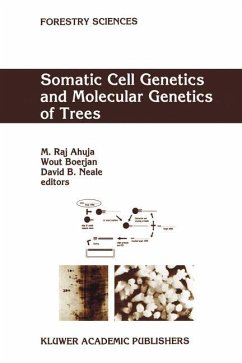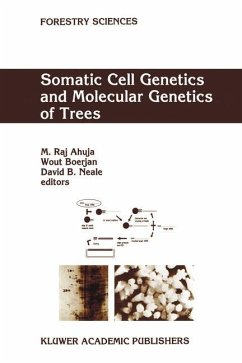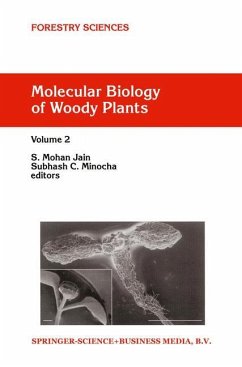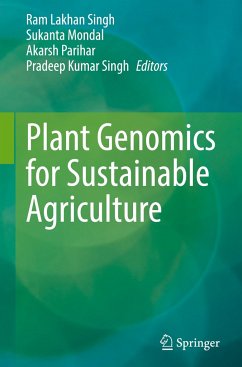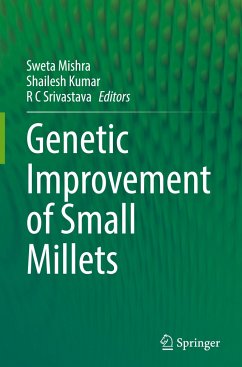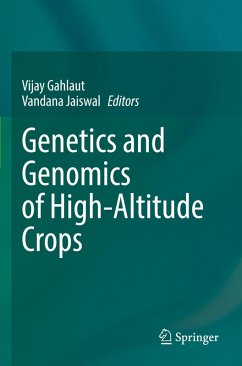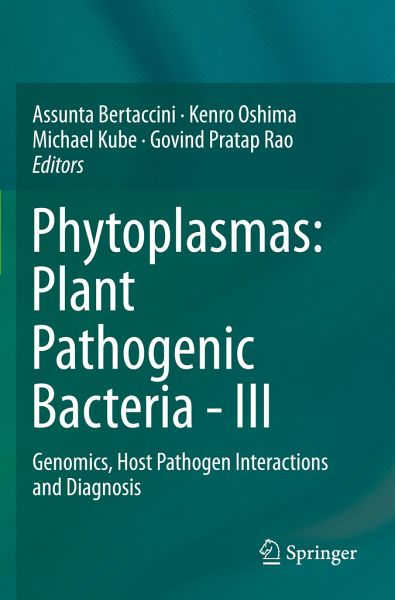
Phytoplasmas: Plant Pathogenic Bacteria - III
Genomics, Host Pathogen Interactions and Diagnosis
Herausgegeben: Bertaccini, Assunta; Oshima, Kenro; Kube, Michael; Rao, Govind Pratap
Versandkostenfrei!
Versandfertig in 6-10 Tagen
136,99 €
inkl. MwSt.

PAYBACK Punkte
68 °P sammeln!
Phytoplasma III is the last of three books in the series covering all the aspects of phytoplasma-associated diseases. Phytoplasmas are a major limiting factor in the quality and productivity of many ornamental, horticultural and economically important agriculture crops worldwide, and losses due to phytoplasma diseases have disastrous consequences for farming communities. As there is no effective cure for these diseases, management strategies focus-on exclusion, minimizing their spread by insect vectors and propagation materials, and developing host plant resistance.This book provides an update...
Phytoplasma III is the last of three books in the series covering all the aspects of phytoplasma-associated diseases. Phytoplasmas are a major limiting factor in the quality and productivity of many ornamental, horticultural and economically important agriculture crops worldwide, and losses due to phytoplasma diseases have disastrous consequences for farming communities. As there is no effective cure for these diseases, management strategies focus-on exclusion, minimizing their spread by insect vectors and propagation materials, and developing host plant resistance.
This book provides an update on genomics, effectors and pathogenicity factors toward a better understanding of phytoplasma-host metabolic interactions. It offers a comprehensive overview of biological, serological and molecular characterization of the phytoplasmas, including recently developed approaches in diagnostics, such as transcriptomics studies, which have paved the way for analyzing the gene expression pattern in phytoplasmas on infection and revealed the up-regulation of genes associated with hormonal response, transcription factors, and signaling genes. Although phytoplasmas remain the most poorly characterized pathogens, recent studies have identified virulence factors that induce typical disease symptoms and have characterized the unique reductive evolution of the genome. Reviewing the advances in cultivation in axenic media together with the perspectives for future research to reduce the global incidence of these pathogens and the associated agricultural losses, the book is a valuable resource for plant pathologists, researchers in agriculture and PhD students.
This book provides an update on genomics, effectors and pathogenicity factors toward a better understanding of phytoplasma-host metabolic interactions. It offers a comprehensive overview of biological, serological and molecular characterization of the phytoplasmas, including recently developed approaches in diagnostics, such as transcriptomics studies, which have paved the way for analyzing the gene expression pattern in phytoplasmas on infection and revealed the up-regulation of genes associated with hormonal response, transcription factors, and signaling genes. Although phytoplasmas remain the most poorly characterized pathogens, recent studies have identified virulence factors that induce typical disease symptoms and have characterized the unique reductive evolution of the genome. Reviewing the advances in cultivation in axenic media together with the perspectives for future research to reduce the global incidence of these pathogens and the associated agricultural losses, the book is a valuable resource for plant pathologists, researchers in agriculture and PhD students.





